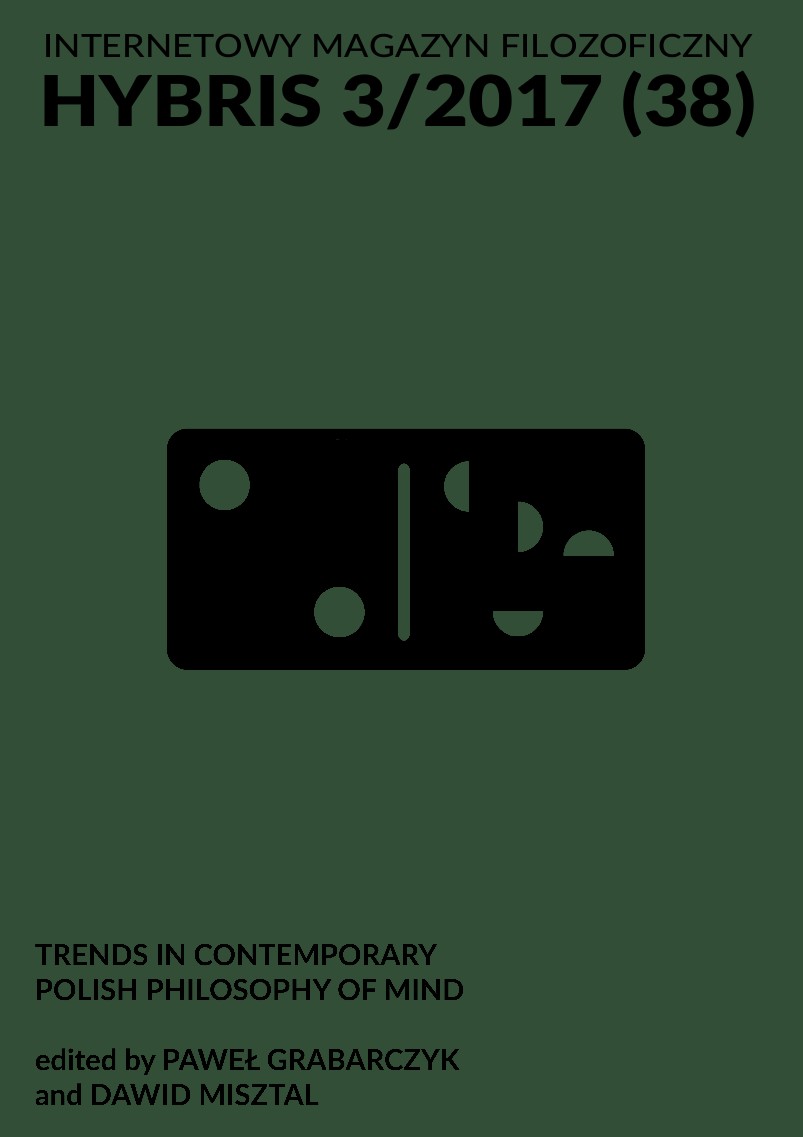Knowledge about our experience and distinguishing between possibilities
DOI:
https://doi.org/10.18778/1689-4286.38.09Słowa kluczowe:
Robert Stalnaker, externalism, contextualism, phenomenal experience, self-locating beliefsAbstrakt
In my article I reconstruct the main threads of Robert Stalnaker’s book Our Knowledge of the Internal World, which focuses on the problem of our epistemic relation to our experience and the relation between experience and knowledge. First, the book proposes an interesting view of externalism, which combines classical externalist claims with a contextualist approach to content ascriptions. The approach accommodates some important internalist intuitions by showing how content ascriptions can be sensitive to the perspective from which a subject perceives the world. Second, Stalnaker proposes a theory of self-locating and phenomenal knowledge, which should be understood in terms of differentiating between real possibilities. The puzzling upshot of this elegant solution is that it commits one to the existence of possibilities accessible only from the first-person perspective. Finally, Stalnaker presents an argument which shows that our knowledge about our phenomenal experience is no more direct than the knowledge about external objects. Stalnaker’s claim that by merely having an experience we don’t learn any new information seems, however, too strict in light of his contextualist approach to content ascriptions.
Bibliografia
Burge, T. (1979), “Individualism and the Mental”, Midwest Studies in Philosophy 4: 73-121.
Zobacz w Google Scholar
DOI: https://doi.org/10.1111/j.1475-4975.1979.tb00374.x
Elga, A. (2000), “Self-Locating Belief and the Sleeping Beauty Problem”, Analysis 60:143-147.
Zobacz w Google Scholar
DOI: https://doi.org/10.1093/analys/60.2.143
Lewis, D. (1979), “Attitudes de dicto and de se”, Philosophical Review 88: 513-543.
Zobacz w Google Scholar
DOI: https://doi.org/10.2307/2184843
Lewis, D. (1981), “What Puzzling Pierre Does not Believe”, Australasian Journal of Philosophy 59: 283-289.
Zobacz w Google Scholar
DOI: https://doi.org/10.1080/00048408112340241
Lewis, D. (1988), “What Experience Teaches”, in Lewis, D. (1999) Papers in Metaphysics and Epistemology, Cambridge: CUP.
Zobacz w Google Scholar
DOI: https://doi.org/10.1017/CBO9780511625343
Lewis, D. (1996), “Elusive Knowledge”, Australasian Journal of Philosophy 74: 594-567.
Zobacz w Google Scholar
DOI: https://doi.org/10.1080/00048409612347521
Nida-Rümelin, M. (1995), “What Mary Couldn’t Know: Belief and Phenomenal States”, in Metzinger, T. (ed.), Conscious Experience, Exeter: Imprint Academic: 219-241.
Zobacz w Google Scholar
Perry, J. (2001) Knowledge, Possibility and Consciousness, Cambridge, Mass.: MIT Press.
Zobacz w Google Scholar
DOI: https://doi.org/10.7551/mitpress/4077.001.0001
Stalnaker, R. (2008) Our Knowledge of the External World, Oxford: OUP.
Zobacz w Google Scholar
DOI: https://doi.org/10.1093/acprof:oso/9780199545995.001.0001
Pobrania
Opublikowane
Jak cytować
Numer
Dział
Licencja

Utwór dostępny jest na licencji Creative Commons Uznanie autorstwa – Użycie niekomercyjne – Bez utworów zależnych 4.0 Międzynarodowe.






